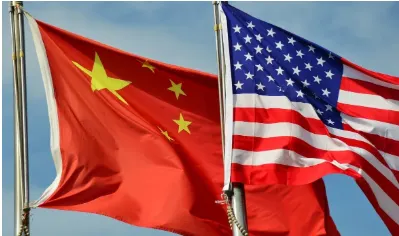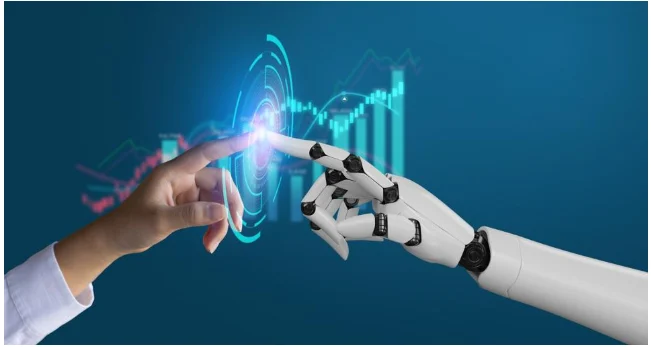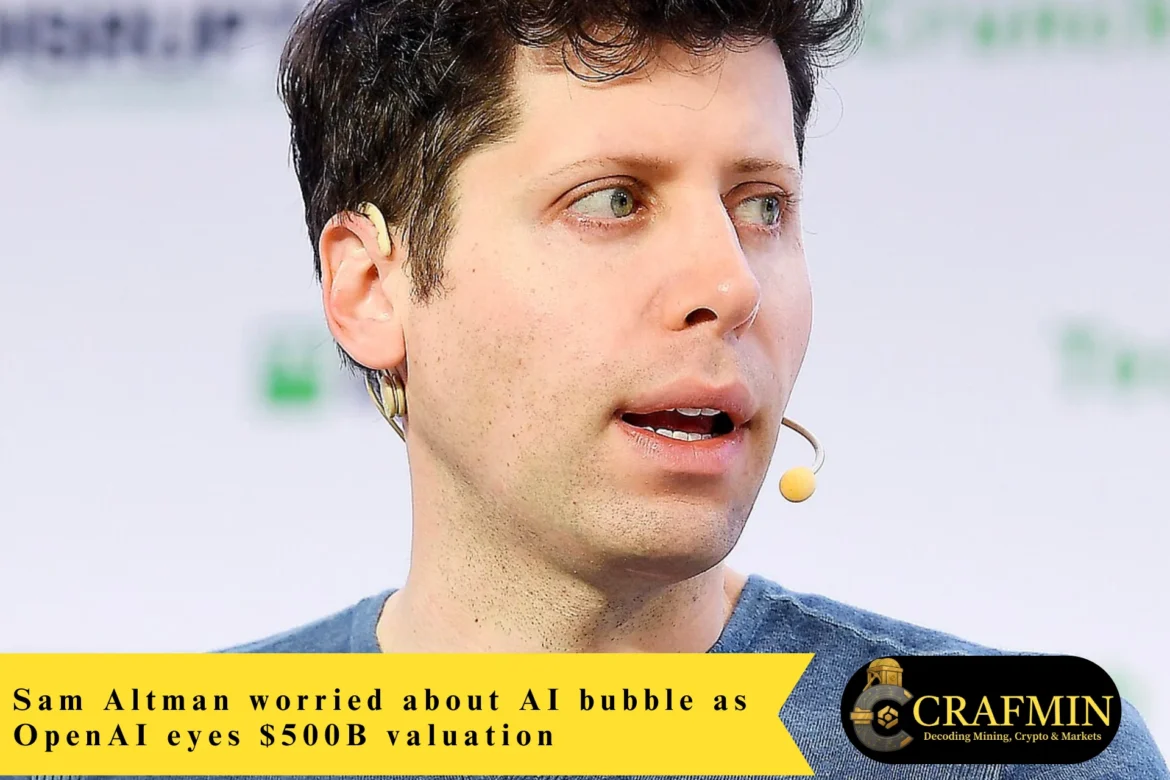The AI industry is riding a wave of hype, money, and ambition—but OpenAI Chief Executive Sam Altman warns that it’s on the cusp of entering bubble territory. As investors are pouring billions of dollars into AI startups, Altman noted that reality is struggling to keep pace with zeal. It’s a moment when OpenAI is in talks with a new funding round valuing the company at a mind-boggling $500 billion.
OpenAI CEO Sam Altman warns of AI bubble, says investors are ‘overexcited’: report https://t.co/co6vBeHe35 pic.twitter.com/0lImLWkCJX
— New York Post (@nypost) August 18, 2025
Altman’s Blunt Warning
Altman was blunt in a recent public release regarding the market.
“Are we in an age where investors are being too optimistic? Yes. Is AI the most important thing in a while? Also, yes,” he responded.
That balance—between hype and innovation—is the one that puts the AI industry in the precarious place where it is. OpenAI, the company behind ChatGPT, is reportedly negotiating a $6 billion stock sale that would put it among the globe’s most valuable private companies. Altman’s statement is meant to issue a warning; however, such swooning valuations are as much an artifact of the frenzy of the market as of technological innovations.
U.S. vs China: A Geopolitical Undercurrent
Apart from the investor optimism, Altman also feared that the manner in which the United States is viewing China’s breathtaking strides in AI is misplaced. In light of existing realities today, the U.S. still underestimates China’s competitiveness in the industry, he said.

Altman cautions that the U.S. is downplaying China’s rapid AI progress, warning that Beijing’s competitiveness is being underestimated ( Image Source: World Geostrategic Insights )
This strain is not on paper. Nvidia, the world leader in selling AI chips, is already developing a new chip, the B30A, specifically for China. The project is a direct counter to Washington’s prohibition and the growing power of Huawei, which is forging ahead with its own AI infrastructure.
The result is an AI arms race between the two largest economies in the world with tech companies caught in the middle of strategic rivalry and regulatory pressure.
Nvidia, Huawei, and the Chip War
Chips remain the bread and butter of the AI revolution, and their supply chain is being turned into a battlefield. Nvidia’s extended dominance of AI hardware has been dented by US export controls, which have provided Chinese rivals such as Huawei with a chance to close the distance.
The B30A chip is designed to circumvent regulatory barriers while still benefiting China with cutting-edge AI computing technologies. On another note, Huawei also took enormous strides despite US sanctions by developing its own hardware ecosystem that can be leveraged to possibly displace Nvidia from its stronghold in Asia.
This battle isn’t just settling business disputes—it’s reinventing geopolitics in technology, and AI is very much at the center.
First, NVIDIA begs Trump to be able to sell to China.
Then Huawei succeeds in creating a faster chip.
Finally, China tells tech companies including Alibaba, ByteDance, and Tencent to suspend NVIDIA chip purchases for security concerns.
NVIDIA as loser.pic.twitter.com/IPjCcaRTlW
— Alternative News (@AlternatNews) August 13, 2025
The Safety Debate Around AI
At the same time, the AI boom opened up dangerous ethical issues. Researchers are only just now uncovering risks involving chatbots such as ChatGPT, particularly when they can be manipulated to provide unsafe or deceptive information.
Current studies have shown that AI systems make incorrect medical prescriptions when pushed to the limit. All of these problems talk about an inherent paradox: whereas AI systems are accredited for their ability to revolutionize industries, they also harbor threats that have yet not be adequately addressed by society.
Altman’s warning of a bubble is thus not simply one of prices. It’s about whether the haste to make money from AI is getting ahead of the technology’s capacity to be safe, stable, and useful.
Why Altman’s Words Matter
Few people have as much sway in the world of openAI as Sam Altman. His two-part message—embracing the revolutionary potential of AI and refraining from too much hype—grasps the nexus where industry finds itself.
The $500 billion valuation mania of OpenAI is a reflection of investors’ belief that openAI is the next big platform wave after the internet and smartphone. But the bubble alert of Altman is a reminder that boom becomes bust so easily when speculation runs too far out of control.
The challenge for companies, governments, and investors will be to distinguish between sustainable growth and hype.
Connecting the Trends
The AI bubble narrative is not unique. In tech and finance arenas, the following is unfolding:
- Macro waltz of crypto: The descent of Bitcoin last week below $115K shows how cryptocurrencies are increasingly tied directly to global monetary policy. Federal Reserve interest-rate actions now affect crypto just as much as adoption measures.
- Blockchain regulatory watershed moment: Binance’s latest token launch contrasts with Hong Kong’s growing strength, showing the way regulation will continue to shape the future of decentralised finance.
- AI watershed moment: Altman’s overvaluation comments, and the U.S.-China chip war, both suggest artificial intelligence is both the most hyped and geopolitically charged arena of the era.
Market Snapshot as of August 19
- Total crypto market cap: $3.93 trillion (+1.08%)
- Ethereum: $4,289 (-3.27%)
- Top gainer: OKB (+5.64%)
- AI visionaries: Nvidia (developing B30A chip), SoftBank ($2B investment in Intel’s AI initiative)
Also read: Amazon May Launch Budget Kindle with Colour Display
A Reality Check for AI
The AI market has never been larger—or more in the limelight. Investors dream of a day when AI will transform everything from medicine to finance. But holdouts such as Altman are warning everyone that all this hype is dangerous.
History being what it is, bubbles rarely portend the demise of an industry—so much as they too often foreshadow the beginning of consolidation, adaptation, and ultimate maturity. The dot-com bubble that burst in the early 2000s slaughtered many companies but enabled the titans Amazon and Google to thrive.
Altman urges caution, warning that today’s booming AI market may be riding more hype than substance ( Image Source: Forbes )
Whether OpenAI’s sky-high valuation represents sustainable belief in its technology or simply speculative excess remains to be seen. What is certain is that the outcome will ripple far beyond Silicon Valley, shaping the future of global technology, economics, and even international relations.

